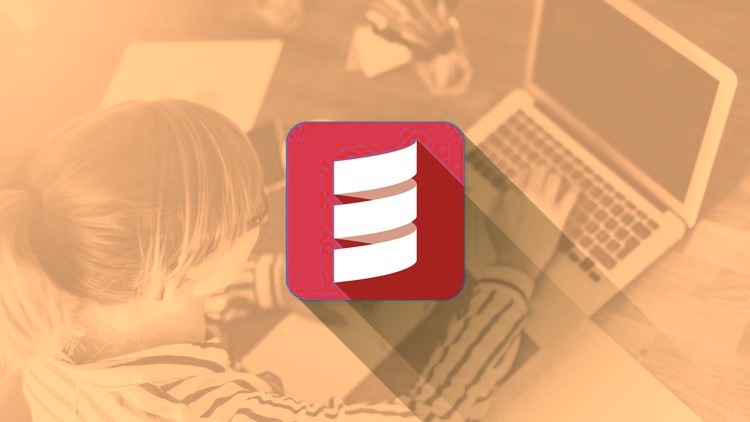Scala Advanced, Part 1 - The Scala Type System

Why take this course?
🌟 Scala Advanced, Part 1 - Mastering the Scala Type System 🌟
Course Overview: Dive deep into the intricacies of Scala with our advanced course designed for seasoned Scala developers. This course focuses on equipping you with a profound understanding of Scala's type system and its application in library design and development. With an emphasis on creating high-quality, correct, powerful, yet user-friendly libraries, this course is your gateway to mastering one of the most sophisticated functional programming languages.
What You Will Learn:
Module 1: Mutable State in Scala
- Understanding Mutability: Grasp the nuances and risks associated with mutable shared state in Scala, and learn best practices for its safe use.
- Properties and Caching: Discover how to manage properties and caching mechanisms effectively within Scala applications to avoid common pitfalls.
Module 2: Deep Dive into Scala Type System Get ready to explore the complex and powerful world of Scala's type system, which is essential for any library or API development. Topics include:
- Generics: Master the use of generics to write flexible and reusable code.
- Variance: Understand co- and contra-variance to ensure your abstractions are correctly typed and can be safely used in a generic context.
- Bounds: Learn how to specify upper and lower bounds to extend or restrict the types that can be used with your abstractions.
- Type Inference: Improve your code by letting Scala automatically infer the correct types without explicit annotations.
- Type Parameters and Type Members: Explore advanced type features, including parameterized types and their members.
- Path Dependent Types: Understand how the structure of a program can affect type checking.
- Refinement Types: Refine your types to express more precise conditions and constraints.
- Structural Types: Learn about type compatibility based on pattern matching.
- Recursive Types: Discover how recursive types can be used for type abstraction and how they differ from regular recursion in Scala.
- F-bounded Polymorphism: Understand how to define and use polymorphic functions with more than one type parameter.
Module 3: The Implicitsc The secondary implicits system in Scala is a powerful tool for managing dependency injection, type class instances, and implicit conversions. This module covers:
- Simple Implicit Parameters: Learn how to use implicit parameters to write flexible functions that can work with or without providing certain values.
- Type Classes: Explore the concept of type classes and how they provide a way to abstract over types in a more composable way than traditional Scala traits.
- Implicit classes, objects, and methods: Understand how to define and use implicit instances of classes, objects, and methods to automatically satisfy dependencies.
- Type Class Composition: Discover techniques for composing type class instances, which can be particularly useful when dealing with complex type relationships.
- Implicit Constraints: Learn how to impose constraints on implicits, ensuring that only suitable instances are available at compile time.
- Scala 3's
=:=and<:<: Get up to speed with the new equality-checking operators introduced in Scala 3 for a more robust handling of implicit equivalences. - Implicit Class and Type Tags: Understand how class tags can be used to control type equivalence based on runtime information.
- Implicit Conversions: Master the art of writing implicit conversion methods that allow for automatic type transformations in your codebase.
extends AnyVal: Learn about extending theAnyValclass and how it can unlock new patterns for type abstraction in Scala.
Course Outcomes:
Upon completing this course, you will have a deep understanding of Scala's type system, which is fundamental for designing well-structured, robust APIs and libraries. You will be equipped to apply advanced type abstractions, reason about complex type calculus, leverage implicit constraints to augment language rules, and much more.
Continue Your Journey:
This course is the first part of a three-part series on Scala Advanced. Parts 2 and 3 will cover additional topics such as best practices, functional programming idioms and patterns, asynchronous programming, parser-combinators, macros, performance profiling and optimization, and much more. These subsequent parts rely on the foundational knowledge provided in this advanced part 1 course.
Get ready to elevate your Scala expertise to new heights! 🚀
Course Gallery




Loading charts...